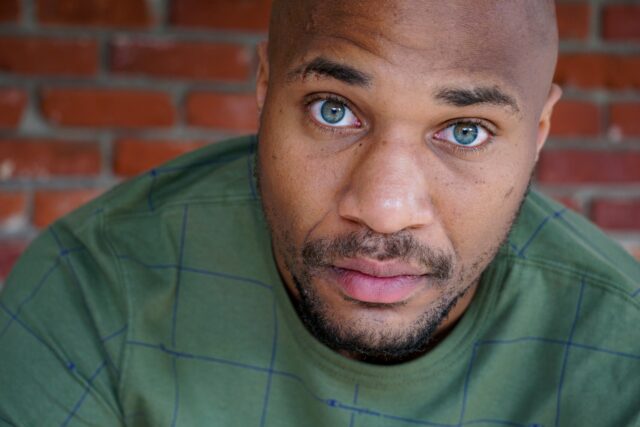We all have things we’re not that confident about, but we don’t necessarily want to broadcast them to the world.
 Source: Unsplash
Source: Unsplash
While you shouldn’t feel guilty for having low self-esteem, it’s important to work on solidifying your sense of self-worth sooner rather than later. Otherwise, you not only risk alienating the people around you, but also holding yourself back from achieving great things in life. Here are some red flags that scream “I’m insecure!” to nip in the bud ASAP.
1. Constantly looking for assurance and validation
 Source: Unsplash
Source: Unsplash Do you fish for compliments or reassurance about your looks, achievements, or people’s feelings for you? While everyone enjoys a bit of appreciation, an excessive need for validation can stem from deep-seated insecurity. It’s a sign you might not value yourself enough, and that can create some major challenges down the line.
2. Being overly jealous and possessive
 Source: Unsplash
Source: Unsplash A little jealousy is natural, but if you’re constantly questioning your partner’s whereabouts, checking their phone, or accusing them of flirting with other people, it’s a major red flag. This behaviour often stems from insecurity and a lack of trust, both of which are killers for relationships.
3. Putting people down to feel better about yourself
 Source: Unsplash
Source: Unsplash Do you make subtle digs at people’s appearance, intelligence, or choices? This kind of behaviour is a classic sign of insecurity. You might be trying to boost your own ego by making everyone else feel small, and that’s disgusting behaviour. Life is not a zero-sum game with only one winner. The sooner you realise that, the less of a loser you’ll seem (and feel) like.
4. Being overly sensitive to criticism
 Source: Unsplash
Source: Unsplash While everyone gets defensive sometimes, someone who’s deeply insecure might react with disproportionate anger or hurt to even constructive criticism. It could mean that you have a seriously fragile ego and struggle to handle feedback in a healthy way. If someone is well-intentioned, try to take what they’re telling you as a learning opportunity to better yourself.
5. Always comparing yourself to other people
 Source: Unsplash
Source: Unsplash Whether it’s about looks, career success, or social status, constantly comparing yourself to the people around you is a sign of insecurity. You feel inadequate, so you try to measure your worth based on external factors. Remember, everyone has their own unique path and strengths.
6. Bragging in the extreme or exaggerating your achievements
 Source: Unsplash
Source: Unsplash While sharing accomplishments is fine, bragging all the time or trying to make your achievements seem more impressive than they are might be a way to compensate for underlying insecurities. True confidence doesn’t need to be loudly proclaimed; it speaks for itself.
7. Refusing to take responsibility for your mistakes
 Source: Unsplash
Source: Unsplash Do you always point the finger when it comes to your problems or failures? This can be a sign of insecurity and a lack of self-awareness. A mature and secure person owns up to their mistakes and takes responsibility for their actions. Fess up when you mess up, apologise, and make amends if necessary. It’s that simple.
8. Being controlling or micromanaging people
 Source: Unsplash
Source: Unsplash While having preferences is natural, being overly controlling or needing to dictate every single aspect of your life might be a way to mask your insecurities. Life is supposed to be about collaboration and teamwork, but if it’s not for you, there could be a problem.
9. Refusing to talk about your feelings
 Source: Unsplash
Source: Unsplash Are you uncomfortable talking about emotions or sharing your vulnerabilities? While not everyone is a natural at emotional expression, constantly avoiding these conversations can be a sign of deeper insecurity. Open communication about feelings is a must for building intimacy and trust in a relationship.
10. Being overly critical of people
 Source: Unsplash
Source: Unsplash If you’re incredibly judgmental or always tearing people down, whether it’s their appearance, choices, or lifestyles, there’s a problem. This negativity might stem from your own insecurities and a desire to feel superior. A confident person accepts and appreciates people’s differences rather than trying to feel like they’re better than everyone else.
11. Being overly dependent on your partner’s approval
 Source: Unsplash
Source: Unsplash While it’s natural to want your partner’s approval, if you constantly seek validation from your partner for every decision, you might lack confidence in your own judgment. A healthy relationship involves mutual respect and the ability to make independent choices.
12. Having a history of short-lived relationship
 Source: Unsplash
Source: Unsplash A pattern of brief relationships ending abruptly or with drama could indicate underlying insecurities that prevent you from forming lasting connections. It’s worth exploring the reasons behind those past relationships to understand if there are unresolved issues that could impact your potential future with someone.
13. Being afraid of commitment
 Source: Unsplash
Source: Unsplash If you consistently avoid defining the relationship or shy away from discussing the future, it might be a sign of commitment issues. This fear could be rooted in insecurity, past experiences, or a general discomfort with vulnerability. If you don’t feel like you’re in a place where you can offer 100% of yourself in a relationship, maybe hold off on getting into one for a while.
14. Struggling with self-care
 Source: Unsplash
Source: Unsplash Neglecting personal hygiene, health, or mental well-being can be a sign of deeper emotional struggles. While everyone has off days, consistently ignoring or avoiding self-care might mean you’re dealing with insecurities that manifest in self-neglect. Make a concerted effort to start putting yourself first.




